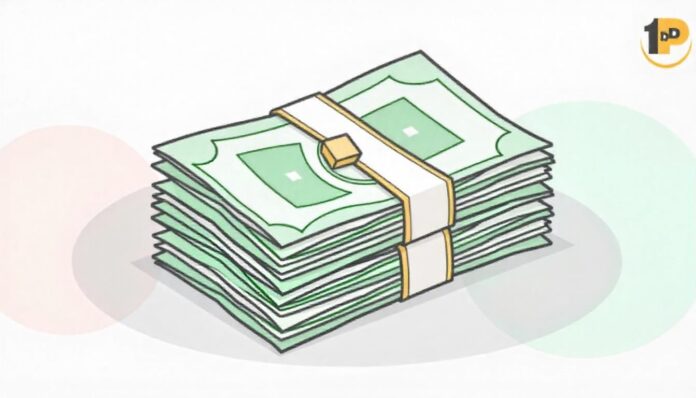Introduction to Political Action Committees (PACs)
Political funding often seems like a maze, filled with terms that can confuse even the most seasoned political enthusiast. Among these terms, Political Action Committees (PACs) frequently come up in discussions about campaign financing and election strategy. But what exactly are PACs? And how do they fit into the larger picture of money in politics?
As elections approach, understanding the role of PACs becomes crucial for voters looking to navigate this complicated landscape. Many wonder if PACs are a form of soft money or hard money—terms that determine how funds flow into campaigns. This blog aims to demystify these concepts and shed light on the intricate world of political funding so you can engage more meaningfully in democratic processes. Whether you’re a curious voter or an aspiring activist, let’s dive deep into the realm of PACs and explore their impact on our electoral system!
The Difference Between Hard Money and Soft Money
Hard money refers to contributions that are regulated by federal laws. These donations go directly to candidates’ campaigns and must adhere to strict limits set by the Federal Election Commission (FEC). Transparency is key here; donors need to be disclosed, ensuring accountability in political financing.
On the other hand, soft money operates outside these stringent regulations. It typically funds party-building activities rather than direct candidate support. While there are fewer restrictions on how much can be donated, it creates potential loopholes for large contributions.
The distinction impacts how elections are funded and conducted. Hard money promotes a level of oversight that many argue strengthens democracy. Soft money’s lack of regulation raises concerns about influence and corruption in politics, making it a topic of ongoing debate among voters and lawmakers alike.
History of PACs and Campaign Finance Laws
Political Action Committees, or PACs, emerged in the 1940s as a response to increasing political engagement. Initially formed by labor unions, their goal was to support candidates aligned with workers’ interests.
The Federal Election Campaign Act of 1971 marked a significant turning point. This law aimed to regulate campaign contributions and expenditures more strictly. It established guidelines for how much individuals and organizations could donate.
As time went on, further amendments adjusted these regulations. The Bipartisan Campaign Reform Act of 2002 introduced new restrictions on soft money donations – funds given to parties rather than specific candidates.
Despite these laws, loopholes remained. Supreme Court decisions like Citizens United v. FEC in 2010 changed the landscape dramatically, allowing corporations and unions greater freedom to contribute funds without limits through independent expenditures.
This ongoing evolution reflects the complex relationship between democracy and money in politics today.
Impact of PACs on Elections
Political Action Committees, or PACs, play a significant role in shaping elections. They can amplify the voices of specific interest groups and influence public opinion on key issues.
By pooling resources from individuals and organizations, PACs create substantial funds that candidates rely on for campaigning. This financial support often translates into increased visibility through advertisements and outreach efforts.
The presence of PACs has led to heightened competition among candidates. Those with strong backing may outpace opponents who lack similar funding. Consequently, this dynamic can skew election results toward wealthier interests.
Moreover, the strategies employed by PACs can shift campaign narratives. By focusing on particular topics or controversies, they guide voter attention where it matters most to their agenda.
As a result, the impact of PACs extends beyond mere financial contributions; they reshape electoral landscapes in profound ways.
Controversies Surrounding PACs and Soft Money
Political Action Committees (PACs) have become a focal point of debate in recent years. Critics argue that PACs amplify the voices of wealthy individuals and corporations, drowning out ordinary voters. This raises questions about the integrity of democracy itself.
Soft money, often associated with PAC funding, is particularly controversial. It allows for unlimited contributions to party organizations without strict regulations. Many believe this loophole undermines transparency in political financing.
Furthermore, some studies suggest that candidates heavily backed by PACs may prioritize donor interests over their constituents’. Voters are left wondering whose agenda these politicians truly serve.
The rise of Super PACs has only intensified scrutiny around traditional PACs. These entities can raise unlimited funds but must operate independently from candidate campaigns, blurring ethical lines even further. As a result, public trust in the electoral system continues to erode amidst claims of corruption and undue influence.
Alternatives to Traditional PACs: Super PACs and Dark Money Groups
Super PACs emerged as a significant alternative to traditional PACs after the landmark Citizens United v. FEC decision in 2010. Unlike standard PACs, these organizations can raise unlimited funds from individuals and corporations. Their primary focus is independent political spending, which means they cannot directly contribute to candidates or parties.
Dark money groups take this concept further by allowing donors’ identities to remain concealed. These entities operate under nonprofit status, enabling them to sidestep regulations that require transparency in campaign financing.
Both Super PACs and dark money groups have transformed the landscape of political funding. They wield considerable influence over elections without needing public accountability for their financial sources. As such, they’re often at the center of debates about fairness and integrity within the electoral process.
Conclusion: The Future of Political Funding in the United States
The landscape of political funding in the United States is evolving. With the rise of PACs, Super PACs, and dark money groups, traditional financing methods are being challenged. These changes have sparked debates about transparency and accountability in campaign finance.
As we move forward, it’s essential to monitor how these entities influence elections. The implications for democracy are significant. Voters deserve to know who funds their candidates and where that money comes from.
Regulatory reforms may be necessary to enhance transparency while maintaining freedom of speech rights associated with donations.
The future remains uncertain but engaging citizens in this dialogue will be crucial as they navigate an increasingly complex political funding environment. Understanding whether PACs fit into the soft money category is just one piece of a larger puzzle that affects every American voter.













